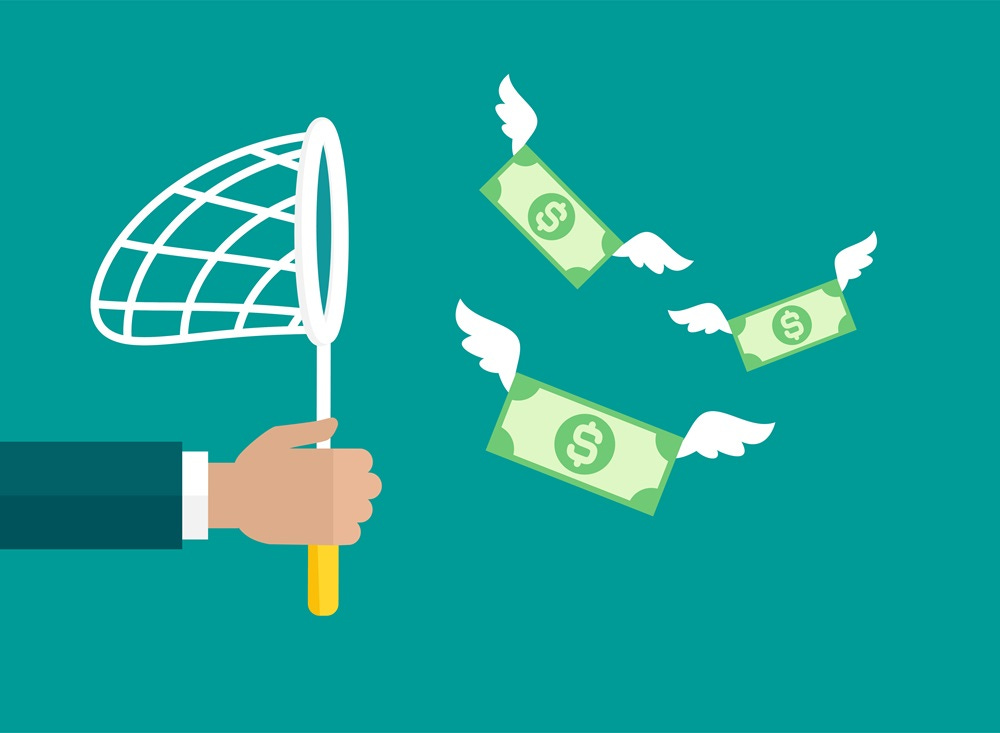It Will Never Be Enough
Money can't fill the hole inside of us. So why do we think it can?
A few months ago, when I was really struggling to make money and it felt like every door I knocked on was locked from the other side, I had a thought.
"God, I think I would like myself a lot more if I made more money."
I had been wrestling with feelings of shame and of being defective, and even though these feelings weren't new, in this past season I tied them to my income. I assumed that I felt bad about myself because I didn't earn enough, and that once I earned more money, the feelings of shame would magically disappear.
Today, my finances are a lot better. I landed a new client who pays very well, and my income is on track to double from where it was a few months ago. And yet, on Monday morning this week, I felt the exact same sense of shame that I did when I was struggling to make ends meet.
So what's going on?
I think my sense of shame is untethered from external circumstances for at least two reasons.
First, with more money comes more responsibility. We think that earning more will make things easier (more secure, less stressful), and in some ways it does. But with more responsibility comes more opportunity to screw up. My story about myself went from "I'm too defective to earn money" to "I'm too defective to handle all of these new responsibilities," but the new income and associated responsibility still provided plenty of fertile ground for that feeling of shame to flourish.
Second, there's brain science behind why earning more money (or getting more status, more fame, a more prestigious job, a partner, etc) don't make us feel good about ourselves. These things all release dopamine hits in the brain. Dopamine is associated with short-term pleasure; it's the same chemical that fires in an addict's brain when they get a hit. But dopamine can't make us feel better about ourselves. If it could, every addict would be a Zen monk who was perfectly content in his or her own skin.
In my 20s, I spent years chasing dopamine hits to try to change my self-perception. I was a political commentator, and I was always gunning for the next big outlet, the next opportunity to go on the radio or on TV (I think I was kind of a nightmare to my agent, actually). Each status symbol I acquired triggered a dopamine hit, but the feel-good sensation was always fleeting.
I remember one time a friend told me that my work had been cited by CNN. I felt amazing! It was a huge dopamine hit. But ten minutes later it was gone, and I was still the same person—with the same sense of shame—that I had been before I got the news.
Nothing had really changed.
I don't think I'm alone in looking to external things to change how I felt about myself. I think a lot of us fall into this trap. We think that when we get that next raise—or that next standing ovation at a conference, or that big promotion into the corner office, or the partner of our dreams—then we'll finally start to feel good about ourselves. We trick ourselves into thinking that a change in external circumstances can cure internal problems.
But it doesn't work that way.
To be clear, there are good things about earning more money (or reaching a bigger audience, finding a great partner, etc). Now that my wife and I are earning more money, we can go out for more date nights. We can pay down our debt more aggressively. We can start saving for kids, and to send her to graduate school. Those are all good things.
But I think a lot of us fall into the trap of expecting money to do more for us than it was designed to do. Money can make our lives materially easier, and give us more options for things like vacations and fancy dates. But it can't change how we see ourselves. It cannot fill the hole inside of us.
And to the extent that we try to chase external things in order to feel better about ourselves, we're hurting ourselves in two ways. First, we're dooming ourselves to a life of frustration and unhappiness interspersed with occasional dopamine hits that somehow never really satisfy.
Second, we're crowding out the best solution I've ever found to actually healing the hole that many of us feel inside of us: a personal relationship with the Divine.
Heal the West is 100% reader-supported. If you enjoyed this article, please consider upgrading to a paid subscription or becoming a founding member. I greatly appreciate your support.



I'm happy to hear you are more financially stable! And I really appreciate the insight on how most of the things we chase in life are mere dopamine hits instead of the deep, inner mindset change we get from connecting with our creator. I will be trying to apply this lens to my own goals and seeing if I notice any new perspectives.
Maybe more the love of money -- King Midas and all that. It certainly has its pathological manifestations -- like most behaviors with the possible exceptions of motherhood and apple pie. 🙂
But that reminds me of a scene from, I think, Key Largo with Humphrey Bogart where he said to some mobster that all the mobster wanted was "more". To which the mobster gave ready assent.